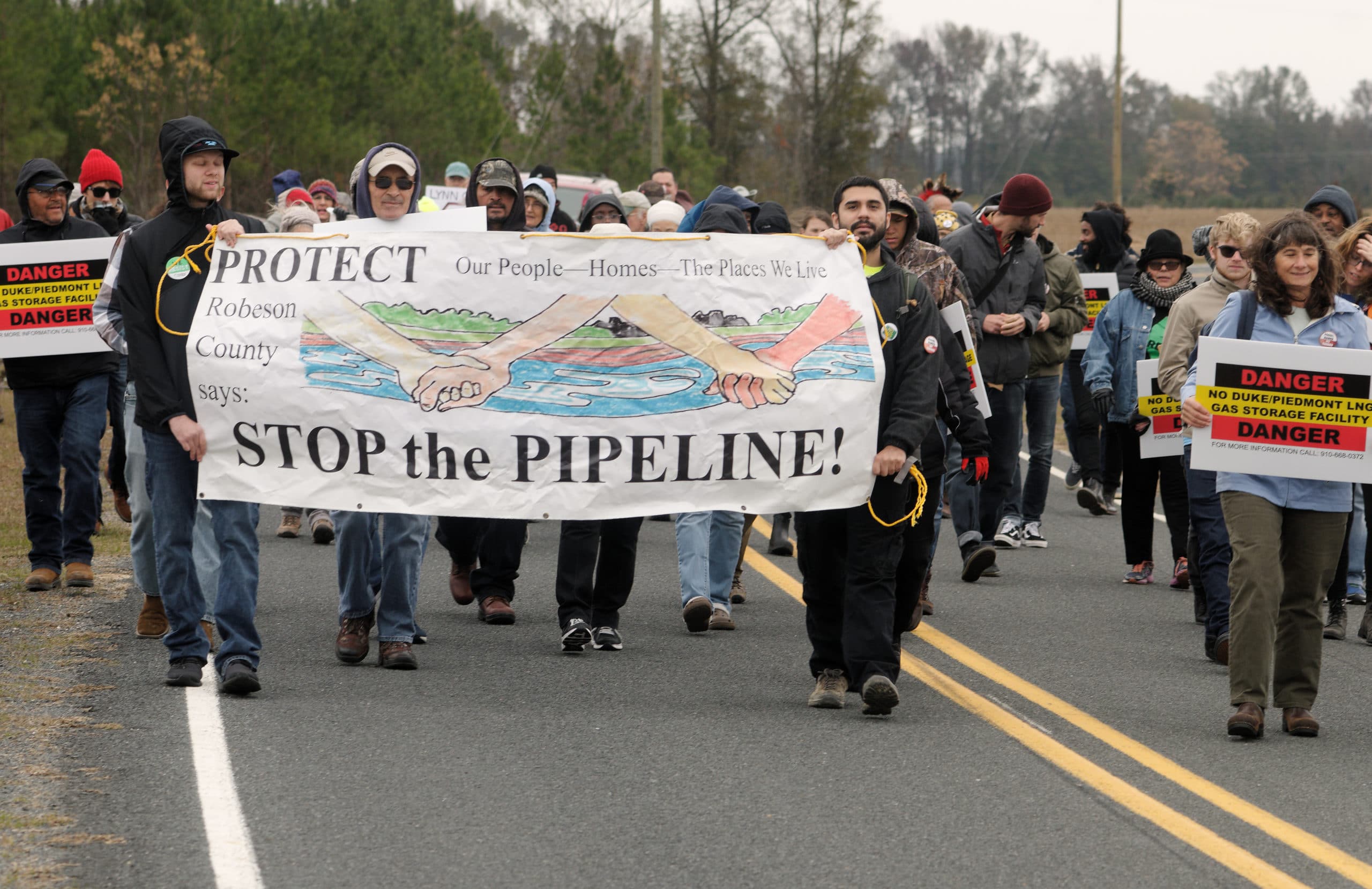
Protecting North Carolina Communities
How we stopped the Atlantic Coast Pipeline
Protecting North Carolina Communities
If built, the Atlantic Coast Pipeline would have carried fracked gas along a 600-mile route from West Virginia through Virginia, North Carolina and ultimately South Carolina. It would have generated 67 million metric tons of climate pollution a year — equal to 20 coal plants. It would have run through the Appalachian Trail, required 38 miles of mountaintop removal, and damaged farmland, forest, wildlife and habitats. And it would have disproportionately harmed low wealth, African American and Indigenous communities.
But, thanks to the power of grassroots activism, the Atlantic Coast Pipeline will not be built. Learn about our victorious campaign that cancelled this pipeline!
Media
Resources
Cancelling the Atlantic Coast Pipeline
Bending to pressure, Dominion and Duke Energy announced cancellation of the Atlantic Coast Pipeline!
This project ended because of the activists taking to the streets and making it clear that we will not stand by while fossil fuel projects poison the bodies, land, air and water of Indigenous, Black and Brown communities.

Ways to Support Our Work

Read Latest News
Stay informed and inspired. Read our latest press releases to see how we’re making a difference for the planet.

See Our Impact
See the real wins your support made possible. Read about the campaign wins we’ve fought for and won together.

Donate Today
Help power change. It takes support from environmental champions like you to build a more healthy and just world.